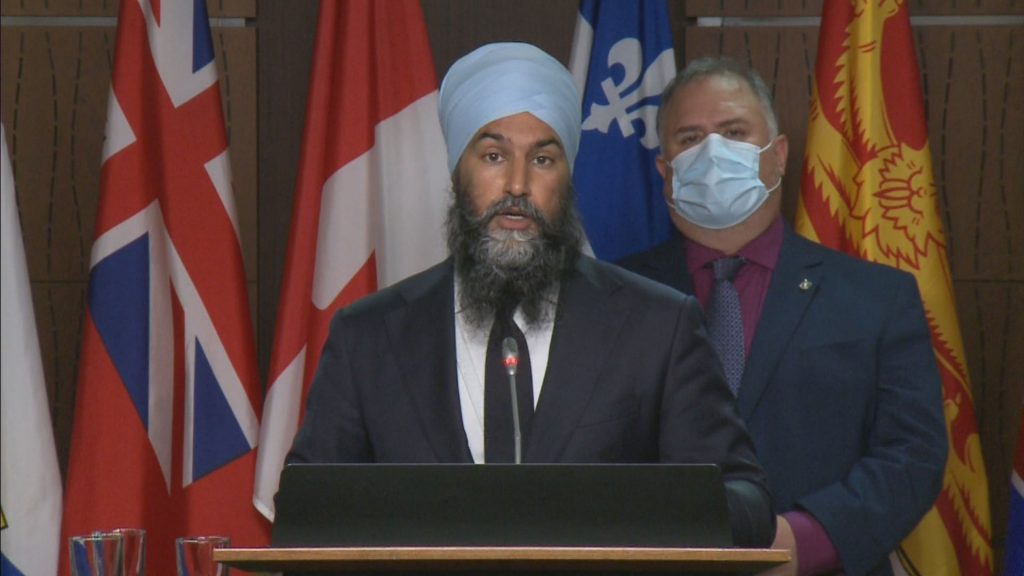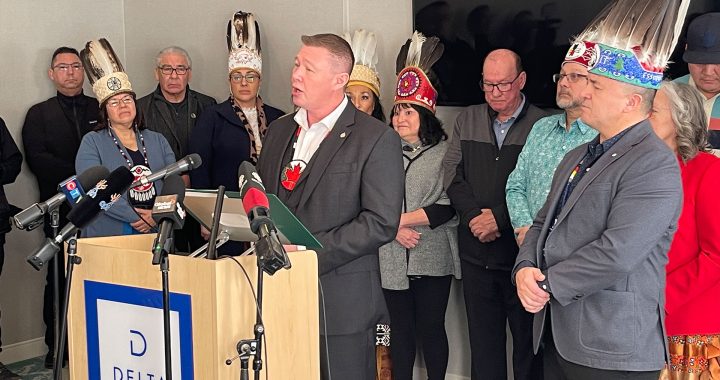
The NDP says the Trudeau government’s decision to exempt possession of small amounts of hard drugs from criminal conviction in one Canadian province doesn’t go nearly far enough and it’s Indigenous people who are paying the price.
“The stats are pretty clear,” Gord Johns, who represents the riding of Courtenay—Alberni. “In my home province of British Columbia, it’s five times more likely to die (of drug overdoses) if you’re Black or Indigenous. In some cities it’s eight-fold. I just did a 12-city tour to stop the harm, to talk about my bill. And I was in Saskatoon where in Saskatchewan they went from 169 deaths in 2019 to 464 deaths last year.
“More than double in two years and more than 50 per cent of the deaths were Indigenous people.”
On Tuesday, Minister of Mental Health and Addictions Carolyn Bennett announced in Vancouver that these small amounts of such illicit drugs as fentanyl, cocaine, heroin and methamphetamine would be exempt from Canada’s criminal drug laws.
The trial period runs from Jan. 31 of next year to Jan. 31, 2026 and applies to amounts of 2.5 grams or less.
The exemption was granted at the request of the B.C. government which has been one of the provinces hardest hit by the opioid and drug crisis.
NDP Leader Jagmeet Singh says the exemption is a good start but what is needed is a national plan and the Liberals are leaving out too many Canadians.
“What does that say about the rest of Canada? “What does that say about the thousands of families who bury their children because they were lost to a toxic supply or to an overdose situation? What does it say to the rest of Canadians, that their lives don’t matter?”
Johns agrees the current drug crisis requires bolder action.
“We know incrementalism kills when it comes to the toxic drug supply crisis. We know that the current patchwork across Canada isn’t working. Yesterday, we heard another announcement of further patchwork in Canada.”
The B.C. MP had put forward a private member’s bill that would have expanded the exemption to all provinces and territories and guaranteed a safe supply of drugs.
The bill would have also granted pardons to all those charged for similar drug offences prior to the exemption.
Singh says this would give people from marginalized communities a fresh start and allow them to get treatment and apply for jobs they wouldn’t be eligible for with a criminal record.
“As we know, the criminal justice system disproportionately impacts racialized and Indigenous lives and to have a record expunged would be in the spirit of reconciliation, in the spirit of the disproportionate incarceration of Indigenous people, the disproportionate incarceration of racialized people. This would really help limit the impacts of a criminal justice approach to people who are dealing with a health problem.”
Nevertheless, Johns’ Bill C-216 was defeated on second reading Wednesday in the House of Commons with most of the Liberal caucus voting against it.










